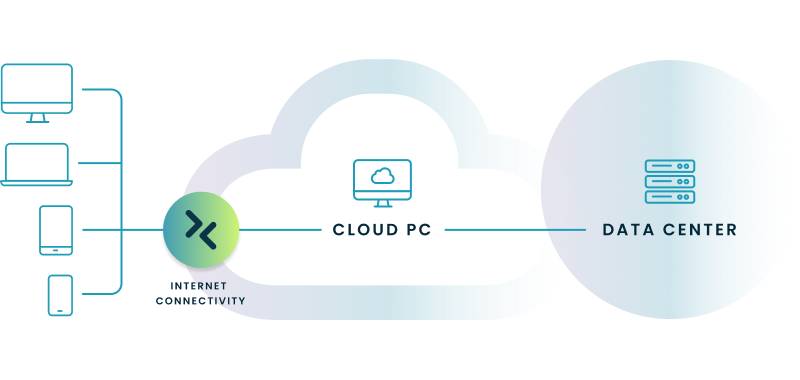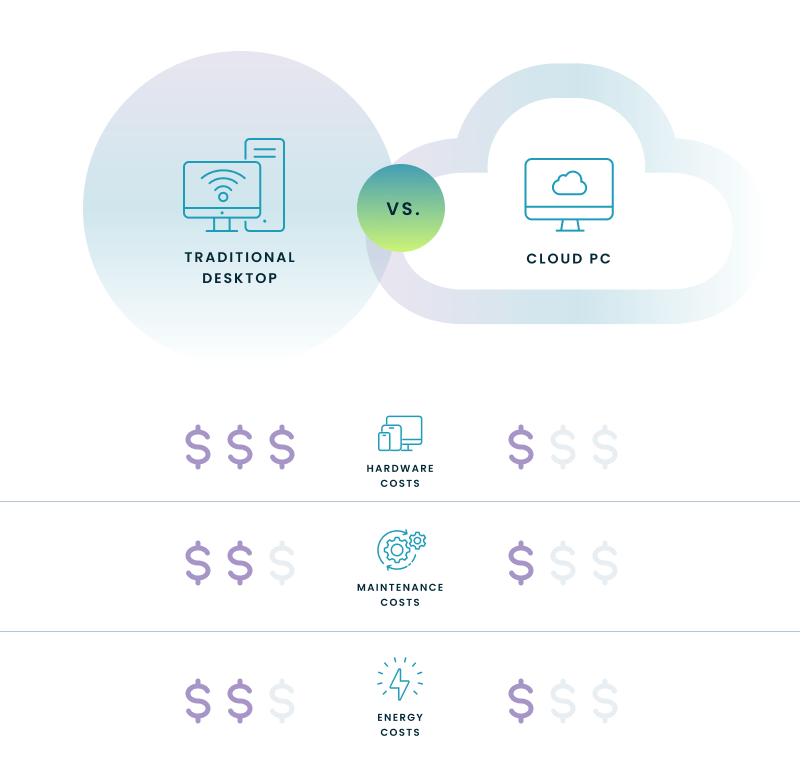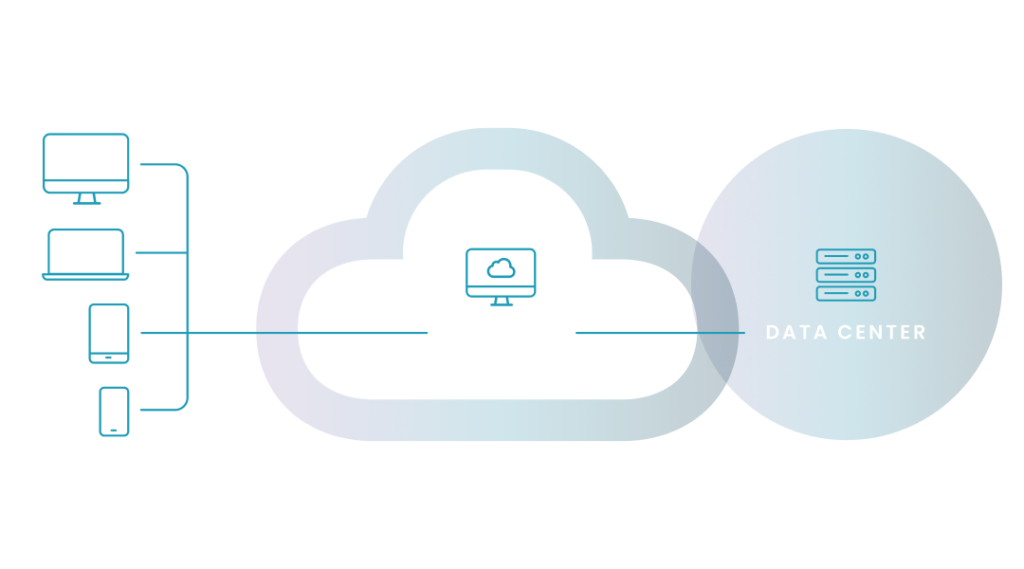
What is a Cloud PC?
A Cloud PC is a virtual desktop hosted in the cloud, enabling users to securely access a full Windows environment from any device or location. Unlike traditional PCs tied to physical hardware, Cloud PCs rely on virtualization to deliver a flexible computing experience. This approach simplifies IT management, enhances scalability, and supports hybrid and remote workforces, meeting modern business demands for agility and productivity.
The term “cloud PC” typically refers to Microsoft’s Windows 365. But it’s also sometimes used to describe any virtual desktop solution delivered from the cloud, regardless of who provides it.
What are the key benefits of using a Cloud PC?
Cloud PCs can transform how businesses operate by providing significant advantages in cost savings, security, remote work enablement, and IT flexibility. This section will highlight the key benefits that make them a powerful solution.


 Tiếng Việt
Tiếng Việt
